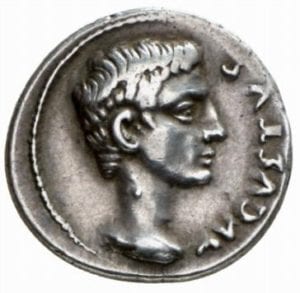
Belonging to God
The Pharisees and the Herodians plotted to entrap Jesus in speech. They formulated a question which, in their minds, will force Jesus to take a side on the issue of paying the census tax. The question was: “What is your opinion: Is it lawful to pay the census tax to Caesar or not?” (Matthew 22:17) If Jesus said “yes”, then the Pharisees, who were against the census tax, would accuse Him of being a collaborator with the Roman oppressors; if Jesus said “no”, then the Herodians, who were in favor of the census tax, would accuse Him of being an insurrectionist against Roman rule. Either way, they would have succeeded in putting Jesus in big trouble.
Jesus answered: “Show me the coin that pays the census tax; whose image is this and whose inscription?” They replied, “Caesar’s.” Then Jesus said: “Then repay to Caesar what belongs to Caesar and to God what belongs to God.” (see Matthew 22:19-21)
Just because Jesus said: “Repay to Caesar what belongs to Caesar,” some people think that Jesus was making an endorsement for paying taxes. But Jesus’ complete response: “Repay to Caesar what belongs to Caesar and to God what belongs to God” can hardly be understood that Jesus took the side of paying the census tax. After hearing Jesus’ response, even the Pharisees and the Herodians were amazed and went away, because they had failed in making Jesus take a side on the issue of paying the census tax.
What then did Jesus mean in His response? For me, there are two levels in Jesus’ response. First, that Jesus wants us to focus not on the things of this earth, but on the things that are of God. Paying taxes are part of life on this earth, so do it if you must; but never forget that we need to repay to God what belongs to God – things such as thanksgiving, glory and praise. Most of us simply forget to do these things, but on the other hand, some people think that just because they prayed to God for something, God owes them what they prayed for. And if they don’t get what they pray for, they end up rejecting God. Still, some people argue that because God created them, God owes them a good and happy life, free from worries and problems. The truth is that God doesn’t owe us anything. St. Paul once wrote: “For who has known the mind of the Lord or who has been His counselor? Or who has given Him anything that he may be repaid? (Romans 11:34-35)” God gave us life and it is up to us to make it meaningful.
Jesus said: “Repay to God what belongs to God.” On a deeper level, if we believe that we belong to God, then we ought to give ourselves totally to God as well. Some people think that giving God everything meant going to church, reading the Bible and praying. All those are good things to do, but doing those things are for our own benefit, not for God. Giving God my all doesn’t mean that one has to leave everything and become a hermit or religious. Anyone can give God their all through faith and trust in God; and by trying to do God’s will at every opportunity – thinking, saying and doing things that glorify God and not ourselves.

This year, November 1st falls on a Sunday. The Mass for the Solemnity of All Saints will be celebrated in lieu of the 31st Sunday in Ordinary Time. All are invited to bring pictures of deceased relatives.

Mass for the Commemoration of the Faithful Departed will be celebrated on Monday, November 2nd at 12pm.
This Mass will be in English.

Daylight Savings Time ends on Sunday, November 1st.
Remember to fall back one hour at 2am on November 1, 2020.